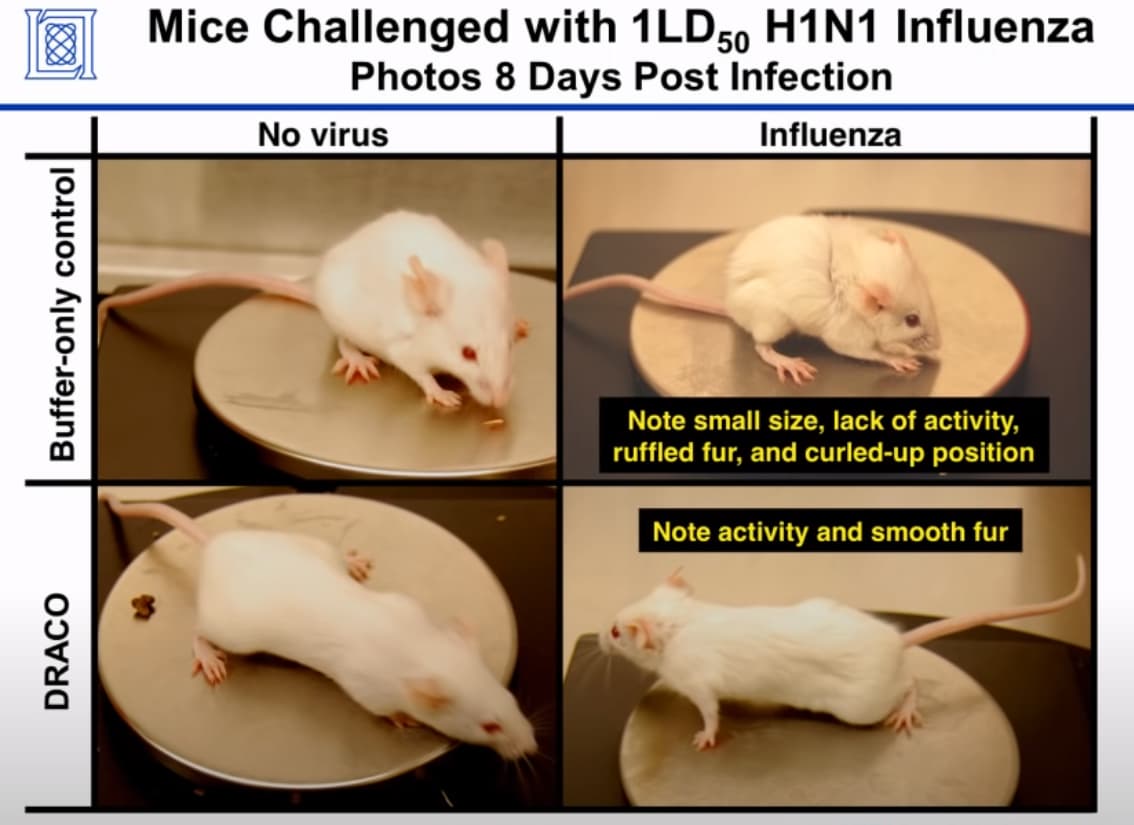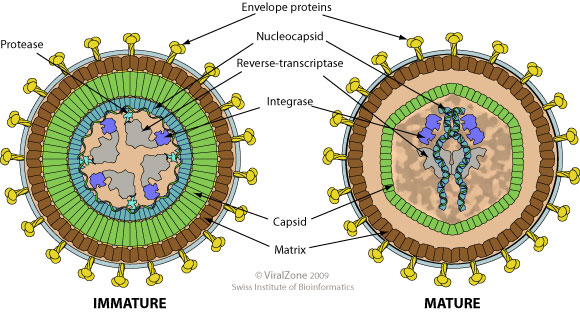With a broad-spectrum antiviral such as VTose, one of the most common questions we get is whether it will work on particular viruses.
The short answer is that we won't know for sure until we test. However, based on the known mechanism of action, we have a pretty good idea of how things should work.
In the original paper about DRACO, they tested against 15 different viruses, and found it was effective against all of them. Importantly, those tests included a wide range of different virus types. For example, positive and negative sense single-stranded RNA (ssRNA), double-stranded RNA (dsRNA) and DNA (dsDNA), with and without envelopes, replicating in the cytoplasm or the nucleus, in 11 different tissue types and with 7 different virus families:
The underlying mechanism of action involves latching onto long dsRNA segments, and then triggering apoptosis. Both of those functions, and the enzymes involved, are already naturally present in every human and animal cell. All we're doing is providing a shortcut that viruses shouldn't be able to bypass, as they often do.
As far as we know, all viruses create long dsRNA segments as part of their replication process. Based on that and the data in the table above, we have good reason to believe VTose may be effective against all human and animal viruses. However, having said that, there may be exceptions we aren't yet aware of.
One area of particular interest that wasn't previously tested is retroviruses, including HIV. Although they do still create dsRNA during viral replication, they also can "hibernate" in an inactive, dormant form. We have ideas about how to address this if it ends up being a problem, but it's something we will need to test.


